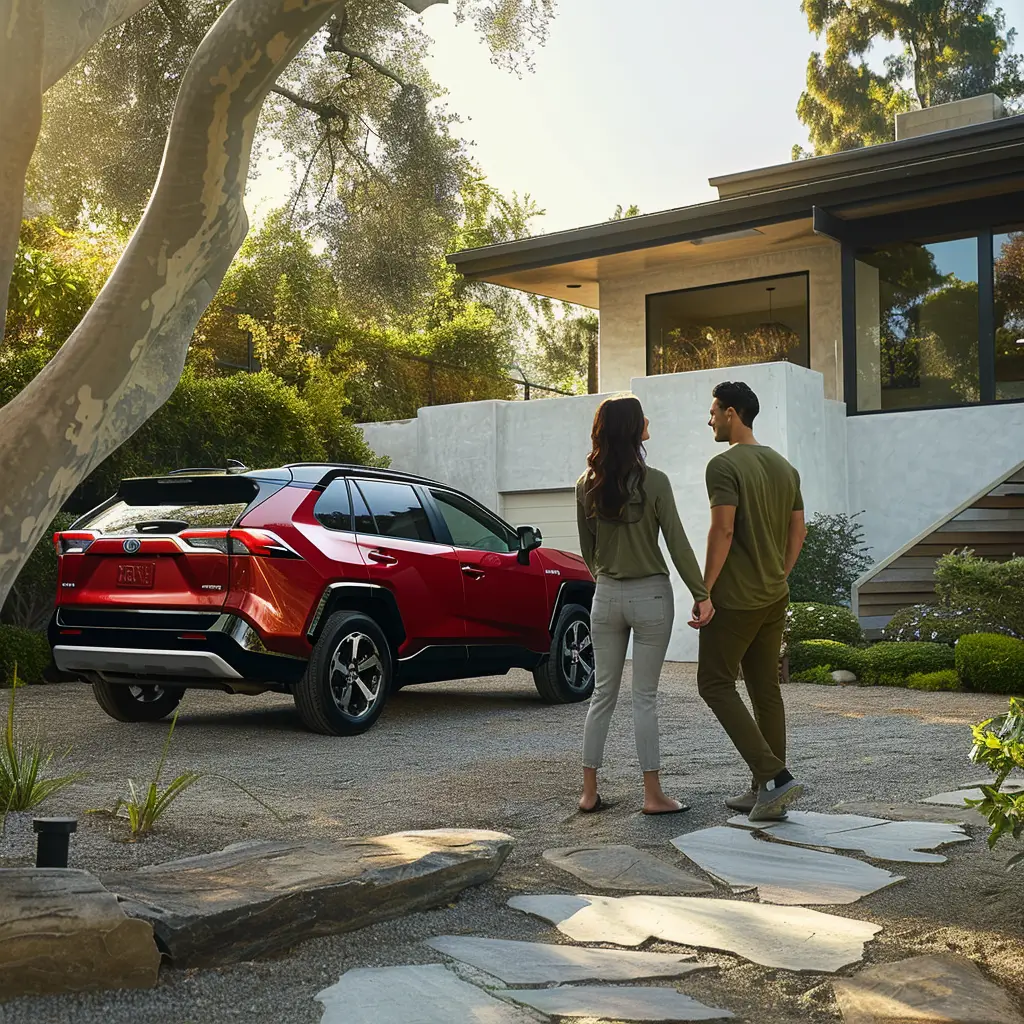Introduction
Understanding the concept of residual value is important for anyone considering a car lease. Residual value represents the estimated worth of a vehicle at the end of the lease term. This figure is essential in determining your and plays a significant role in making an informed leasing decision.
Residual value impacts various aspects of your lease:
- It helps calculate lease payments.
- It influences end-of-lease options.
- It aids in evaluating lease deals.
By grasping how residual value works, you can choose the best leasing options and avoid potential pitfalls.
To understand other critical terms related to leasing, it’s essential to have a firm grasp on the language used in lease agreements. Understanding key lease terms is crucial before committing, as it allows you to decode the language used in lesae agreements and avoid any regrets down the line.
What is Residual Value?
Residual value refers to the estimated value of a car at the end of its lease term. This value is determined by the leasing company based on a set of predetermined criteria and represents what they expect the vehicle to be worth after the lease period.
Determining Residual Value
Several factors come into play when leasing companies determine residual value:
- Vehicle Make and Model: Certain brands and models tend to depreciate slower than others, which can have a significant impact on the car’s future value.
- Market Conditions: The current demand for specific types of vehicles can also influence their residual values.
- Expected Depreciation: The rate at which a car loses its value over time plays a crucial role in setting residual values.
By understanding these elements and how they interact, you can also grasp why certain vehicles may have higher or lower residual values. This knowledge directly affects your lease terms and can help you negotiate better deals.
To gain a more comprehensive understanding of how residual value impacts leasing, you can refer to this insightful article that breaks down the concept and helps you make informed decisions on car leases.
Whether it’s handling accidents with a leased vehicle or understanding your responsibilities in such situations, it’s essential to be well-informed. For expert guidance on knowing your responsibilities after an accident with a leased vehicle, including crucial steps to take immediately, you can refer to CarOracle’s comprehensive resource.
How Residual Value Affects Lease Payments
Lease payments are primarily calculated based on the difference between the car’s initial value and its residual value. This difference, also known as the depreciation amount, is what you essentially pay for over the lease term. For example, if a car’s initial value is $30,000 and its residual value after three years is estimated at $18,000, the depreciation amount is $12,000.
- Initial Value: The purchase price of the vehicle at the start of the lease.
- Residual Value: The estimated worth of the vehicle at the end of the lease term.
- Depreciation Amount: The difference between these two values.
A higher residual value usually leads to lower monthly lease payments. This is because a higher residual value means less depreciation over the lease term. Using the earlier example, if instead of $18,000, the residual value was $20,000, then the depreciation amount would be just $10,000. This lower depreciation translates to reduced monthly payments.
Understanding residual value can significantly impact your leasing decisions. Vehicles with higher residual values often come with more attractive lease deals. CarOracle provides expert insights on finding the best car lease deals near you, offering personalized assistance so you can make informed decisions tailored to your needs.
Technological advancements and economic incentives can also influence car values. For instance, updated guidelines on EV tax credits might affect both initial and residual values for electric vehicles (NPR). Understanding these calculations helps you make informed decisions about your car lease options and ensures you get better deals tailored to your needs.
Factors Influencing Residual Value
Understanding the factors influencing residual value is crucial for anyone considering a car lease. These elements directly impact the amount you pay each month and your options at the end of the lease term.
Vehicle Brand and Model
Certain brands and models retain their value better than others. Luxury brands like Lexus and BMW often have higher residual values due to their reputation for quality and long-term reliability. On the other hand, economy brands might depreciate faster, affecting their residual value negatively.
Market Trends and Demand
Current market conditions play a significant role in determining residual value. High demand for SUVs and trucks can lead to higher residual values for these vehicles. Conversely, a decline in interest for sedans may result in lower residual values for those models.
Economic Conditions
Economic factors such as inflation rates, interest rates, and overall economic health can influence residual value. In a robust economy, people are more likely to buy new cars, which can keep resale values high. During economic downturns, used car prices may drop, impacting residual values negatively.
Mileage Limits and Lease Term Length
The number of miles you drive annually affects the car’s wear and tear, thereby influencing its residual value. Leases often come with mileage limits—typically 10,000 to 15,000 miles per year. Exceeding these limits can reduce the car’s residual value. Similarly, the length of the lease term also matters; shorter leases may have higher residual values since the car remains relatively new.
Technological Advancements
Technological improvements in newer models can render older vehicles less desirable. Features such as advanced driver-assistance systems (ADAS), improved fuel efficiency, and electric or hybrid technology can influence a car’s future market value.
Fuel Efficiency
Fuel-efficient vehicles generally retain more value over time due to rising fuel costs and increasing environmental awareness among consumers. Cars with better miles-per-gallon (MPG) ratings or alternative fuel options tend to have higher residual values.
When choosing a vehicle to lease, consider these factors carefully to maximize your benefits. For example, if you’re interested in finding great deals on cars with high residual values in San Diego, you can explore some of the featured lease deals available in the area.
By understanding these variables, you can make more informed decisions that could save you money both during your lease term and when it ends.
Why Residual Value Matters
Understanding residual value is crucial for lessees. It directly impacts various aspects of your car lease, making it a key factor to consider.
Impact on Lease Payments
A higher residual value often results in lower monthly lease payments. Since lease payments are calculated based on the difference between the car’s initial value and its residual value, a vehicle that retains more of its value will cost you less each month.
Decision-Making at the End of the Lease Term
At the end of the lease term, you have several options: return the vehicle, buy it out, or lease a new one. Knowing the residual value helps you make an informed decision. If the market value of the car is higher than its residual value, buying it out could be a financially savvy move.
Evaluating Lease Deals and Offers
When evaluating lease deals, understanding the residual value helps you identify good offers. A deal with an inflated initial price but low residual value might not be as beneficial as one with a fair starting price and high residual value. This knowledge enables you to compare different leasing options effectively.
By understanding why residual value matters, you can navigate through leasing deals more confidently and make decisions that best suit your financial situation.
Tips for Choosing a Vehicle with a High Residual Value
Selecting a vehicle with a high residual value can significantly impact your leasing experience. Here are some practical tips to help you make the best choice:
1. Research Brands and Models
Certain brands and models notoriously retain their value better than others. Luxury brands like Lexus, BMW, and Mercedes-Benz often have higher residual values. Look into historical data and industry reports to identify these vehicles.
2. Consider Market Trends and Consumer Preferences
Pay attention to current market trends and what consumers are looking for. SUVs and trucks, for instance, tend to have higher residual values due to their popularity and demand in the market.
3. Evaluate Technological Advancements
Vehicles equipped with the latest technology and safety features often retain their value better. Consider cars that come with advanced driver-assistance systems (ADAS), infotainment options, and fuel-efficient technologies.
4. Look for Lease Deals with Manufacturer Incentives and Promotions
Many manufacturers offer promotions that can enhance the residual value of certain models. These incentives can make a lease deal more attractive by reducing the overall cost.
Making informed decisions about which vehicle to lease involves understanding how different factors influence residual value. By focusing on these aspects, you can choose a vehicle that not only meets your needs but also offers financial benefits throughout the lease term.
Conclusion
Understanding car lease residual value equips you with the knowledge to make more informed leasing decisions. By grasping how residual value impacts your lease payments and the overall cost of leasing a vehicle, you can evaluate lease deals more effectively.
Here are some key takeaways:
- Evaluate Lease Deals: Use your understanding of residual value to scrutinize various offers. A deal with a high residual value can significantly lower your monthly payments.
- End-of-Lease Decisions: With a clear insight into residual values, you can better decide whether to purchase the car at the end of your lease or return it.
- Select High Residual Value Vehicles: Prioritize vehicles that are known for retaining their value. This approach not only leads to lower payments but also provides more flexibility in future leasing decisions.
Applying this knowledge will help ensure that your car leasing experience is both financially savvy and suited to your personal needs.



